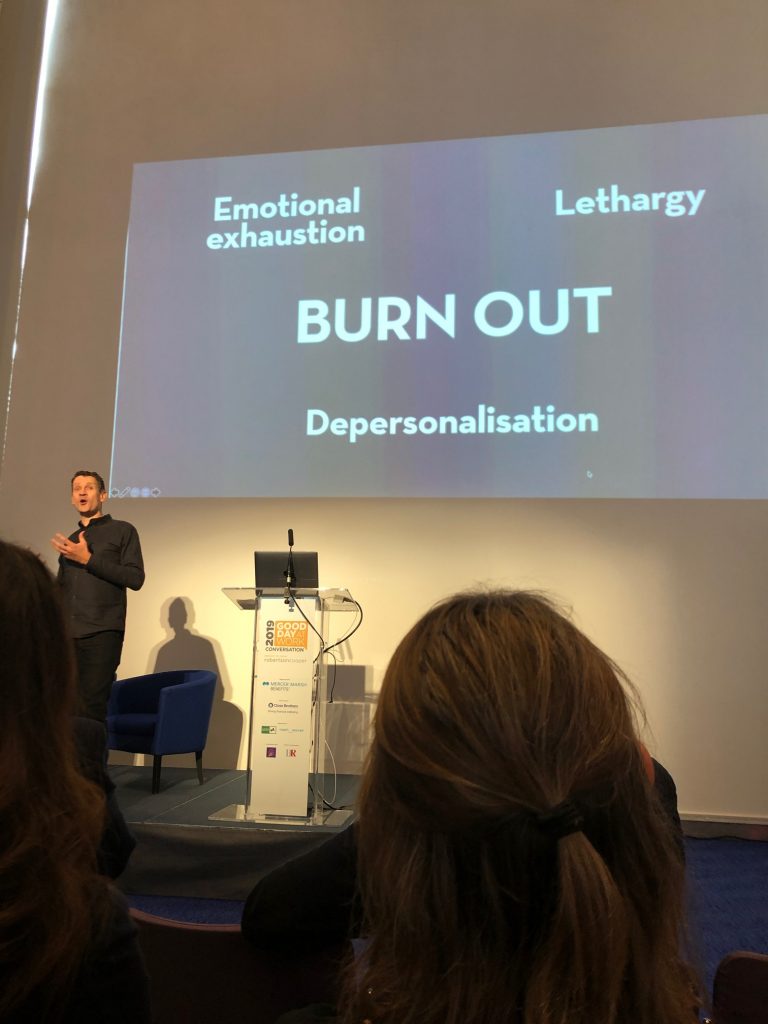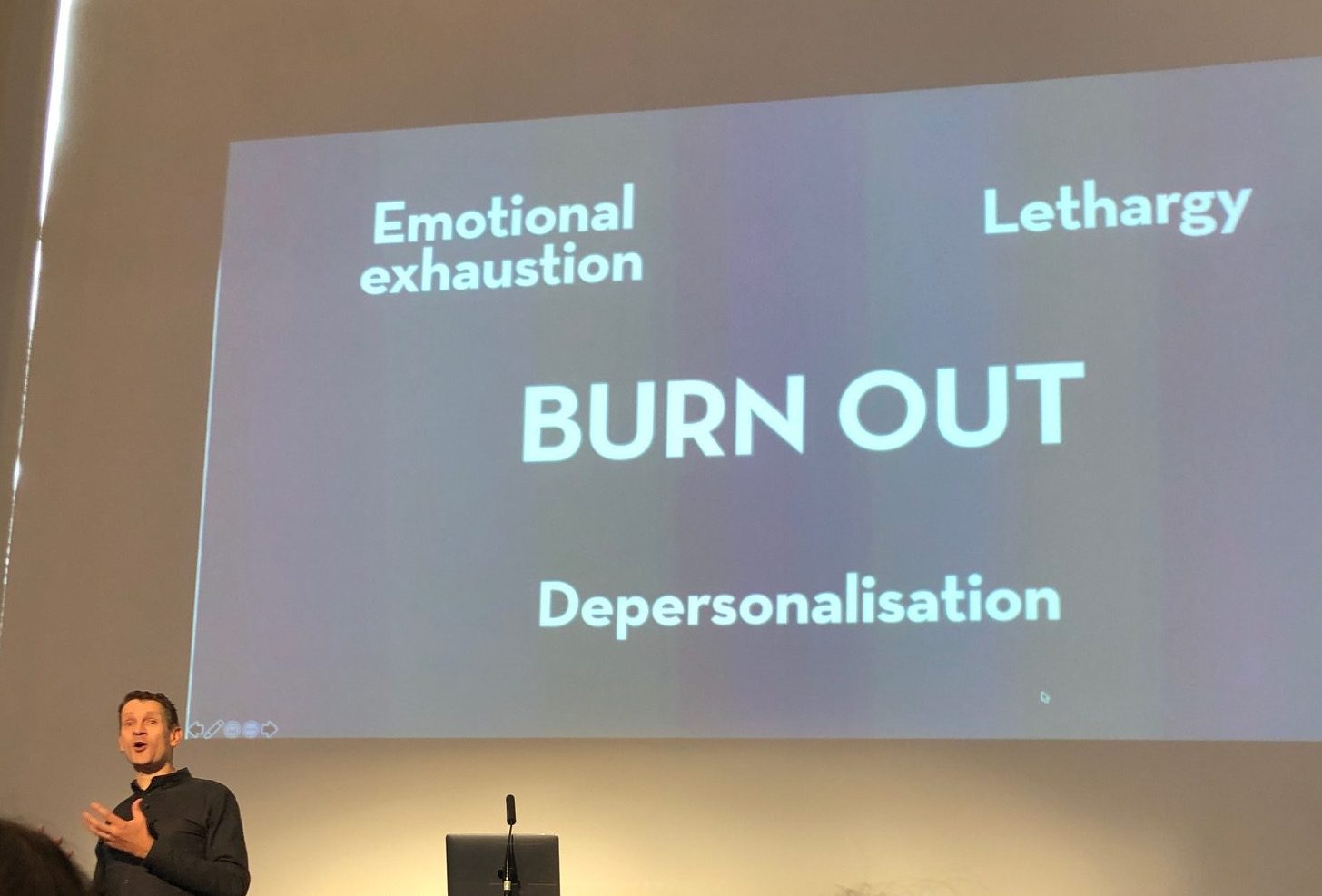Google search terms around ‘workplace stress’ have dropped off over the last 20 years, whereas those around ‘workplace wellness’ have shot up. Such a trend was cited by Professors Ivan Robertson and Sir Cary Cooper, as they opened this year’s Good Day at Work Conference, held yesterday in Manchester at The Bridgwater Hall.

Amidst the fantastic content about Wellness, Mental Health and Culture though, I couldn’t help wonder what search volumes around ‘addiction at work’ and ‘burnout’ might look like over the next ten years. If the UK follows in the wake of the US, it’s set to increase exponentially.
Most people who enter addiction treatment at residential facilities in America, do so via a workplace intervention. Not with-standing the differences between our respective healthcare systems and how prolific medical insurance is ‘over the pond’, it remains that there’s a very different narrative around addiction and treatment in the US.
On attending the Cape Cod symposium on addiction several years ago, one of the speakers suggested that, as an American, if you disclose to a prospective employer during an interview that you are actively working a recovery programme, you’re more likely to be successful in securing the role.
At Delamere, here in rural Cheshire, England, we’re passionate about celebrating recovery and we believe that as more people share their story with pride, the narrative around addiction will improve and the stigma will further dissipate. We acknowledge that coming into treatment calls for a huge amount of courage and humility and know this to be true as we’ve done it ourselves.
Addiction at work though, and crucially what to do about it, is a conversation many shy away from here in the UK. Wellness interventions are popular and well received in the main, yet extremely difficult to prove from an ROI perspective.
What of the colleague who makes a critical contribution yet is affected by addiction? Why not help them, retain them and then compare this cost to that of dismissing and replacing them.
Thank you to HR ZONE for helping us shine a light on this issue recently and thank you to those firms and colleagues we’ve been able to help so far. We include a case study from one HR Director we helped who was faced with a colleague struggling with addiction.
If you, or someone you work with has a problem with addiction, would you know what to do? To join us in a conversation about addiction at work, register your interest at [email protected].

Call us confidentially at any time to speak to a member of our team.
Call us now: 0330 111 2015








